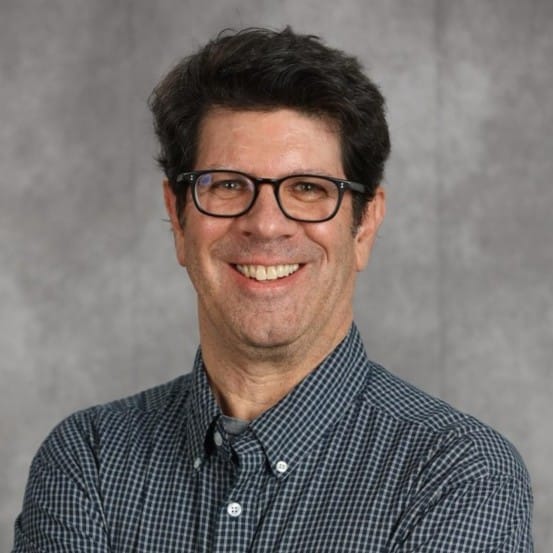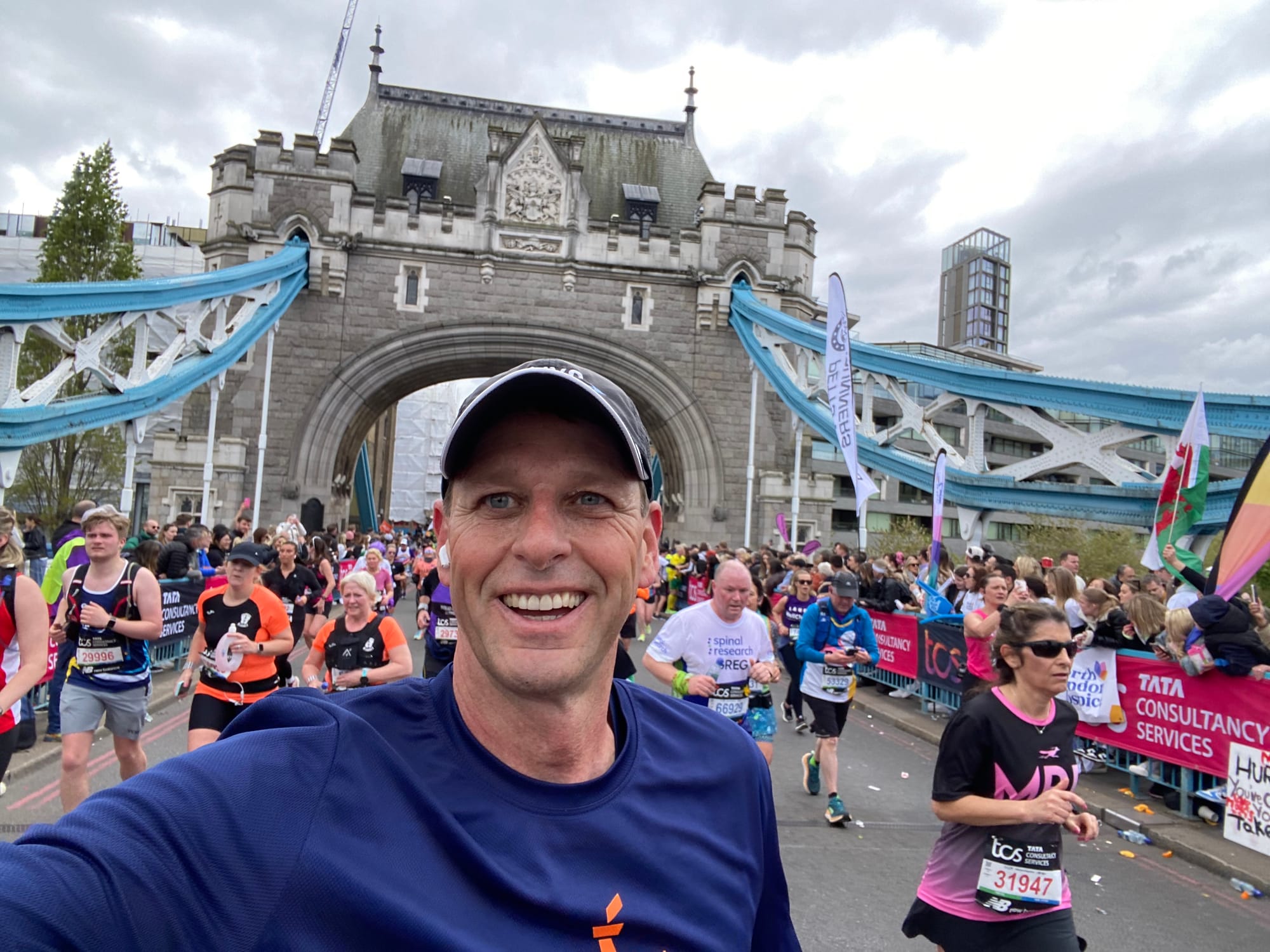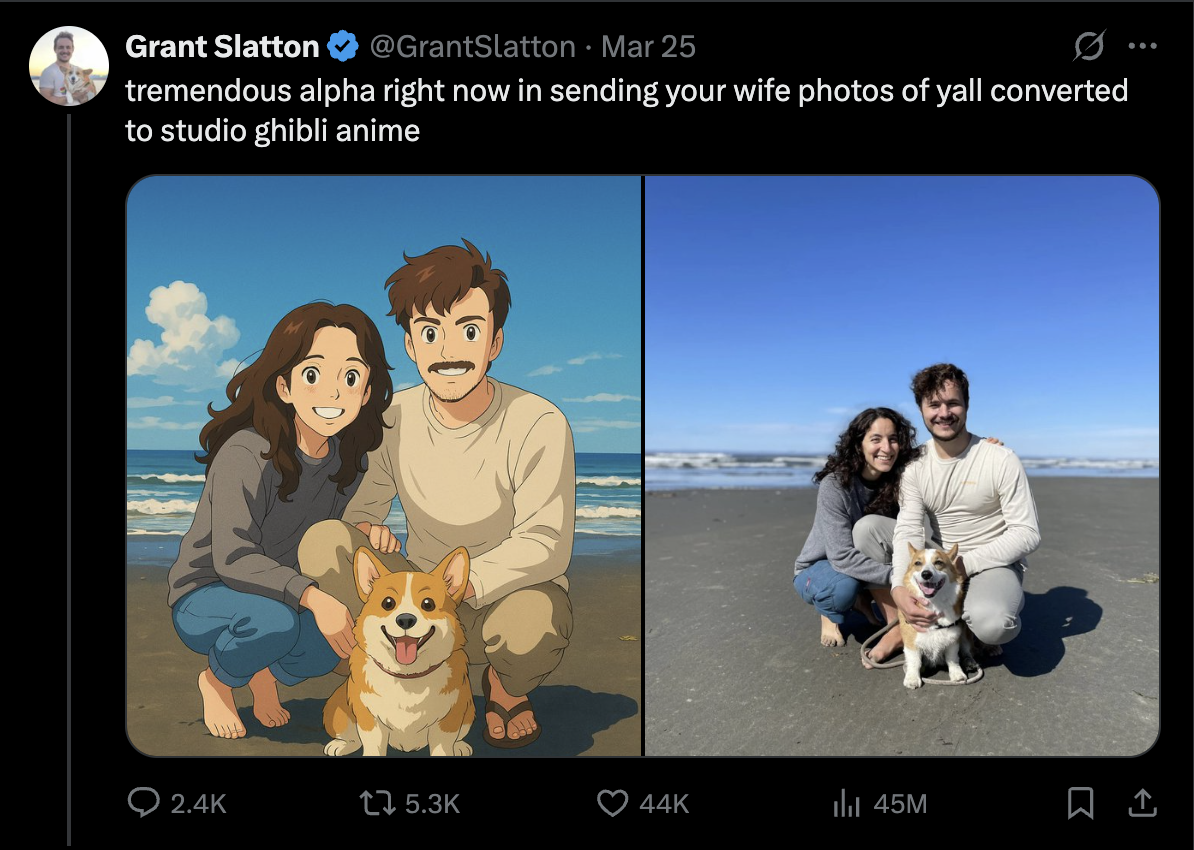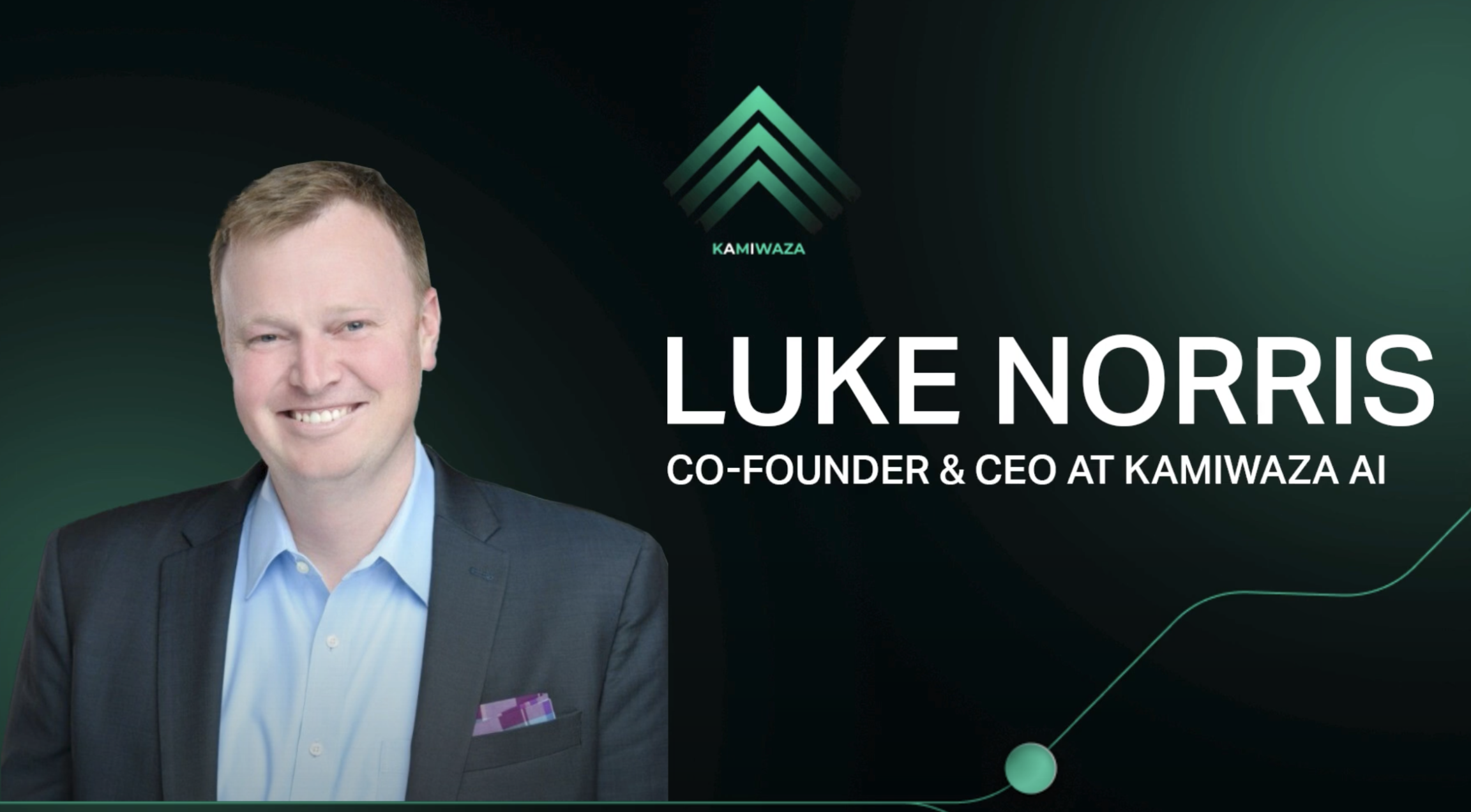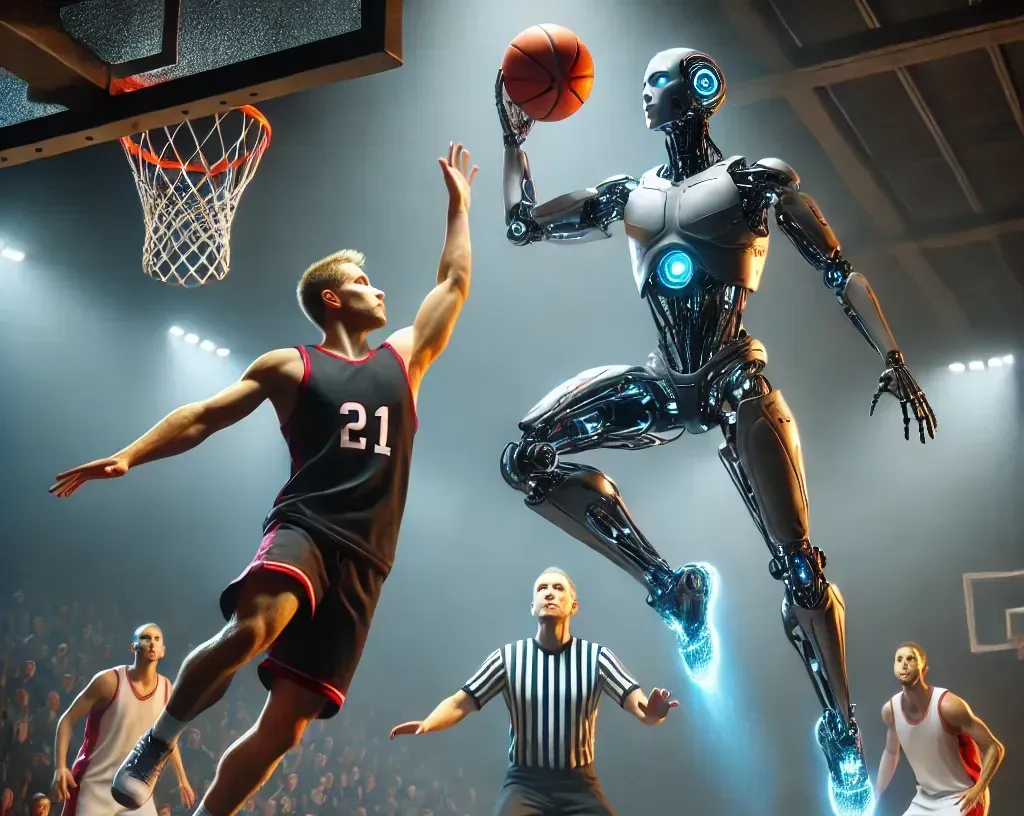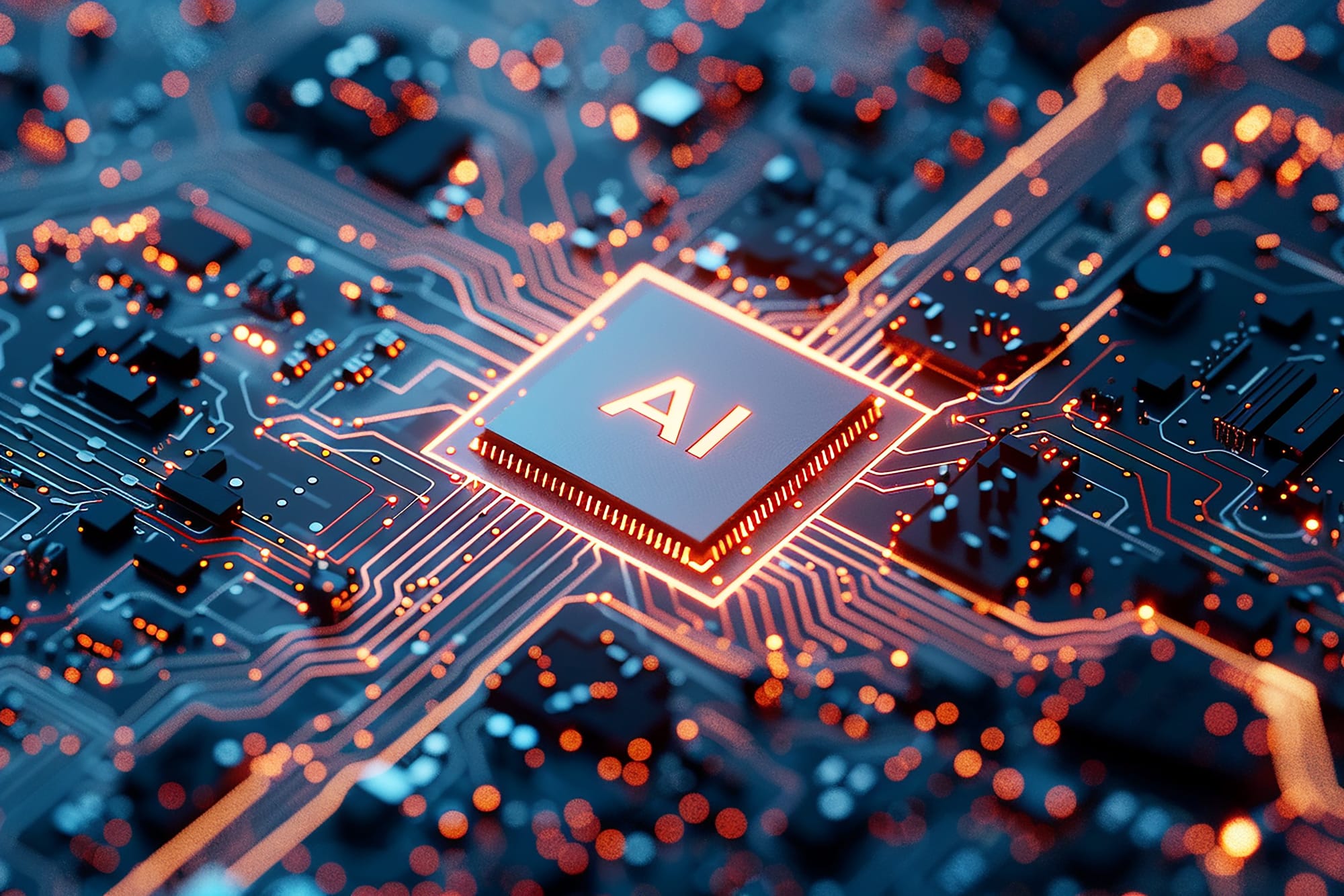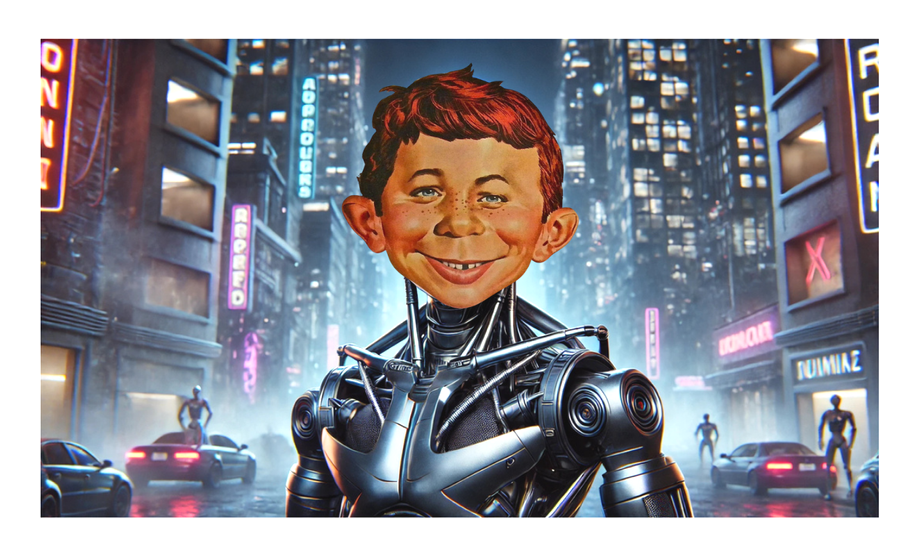Colorado AI News: Welcome, Bill, and congrats on being our first Colorado AI VIP!
Bill Quinn: Thanks, Phil. It’s an honor.
CoAi: Well deserved! In fact, you’re the perfect person for our inaugural VIP. Your experience innovating at tech startups back in the day gives you valuable perspective on what’s happening today in AI. In your current role as a futurist advising some of the world’s largest companies, you have insights into how they’re tackling the challenges of AI and where it fits into all the other challenges they’re facing. And last but not least, you’ve got a constantly improving digital twin that has already helped you run your first two marathons. Good stuff – and I’d say, it’s a very Colorado story!
Bill: (Laughs) Yes, I guess it is, isn’t it?
CoAi: And just to provide our readers with some background, you and I met last December at the Rocky Mountain AI Interest Group, where you gave a thought-provoking presentation, Reimagining the Future. So, in the big picture, you’re a futurist at a time when futurists are needed more than ever. Would you agree with that? I don’t know about you, but it feels to me as if it’s getting tougher to predict what next month will bring, let alone next year.
Bill: Absolutely! In fact, we’re living in very different times today than we were just two years ago. I’ve been a futurist at TCS for six years now, but things changed remarkably after OpenAI launched ChatGPT on November 30, 2022. What may surprise people is that even though I can’t tell you for certain what’s going to happen next month, I will say that my job has gotten somewhat easier since ChatGPT came on the scene.
CoAi: Really? Why is that?
Bill: Well, to go back just a few years, these really large companies I work with – members of the Forbes’ Global 2000 -- have definitely recognized the need to change to get more digitally enabled, to think about where things are going, and to position themselves for the future. But fast forward to November 2022. And all of a sudden, it’s like a match just got thrown on a barn full of hay. Now, all of a sudden, they're *really* interested in the future because they recognize that it's here today.
Welcome to the Exponential Age
I like to talk about this notion of the exponential gap. And there's a really good book titled The Exponential Age that came out a few years ago. It’s by Azeem Azhar, and he talks about how we as humans – and thus, institutions because they're run by humans – tend to think in a very linear way, both in terms of how we operate and how we see the future unfolding.
And some technologies come along that tend to bump along in fairly small and uninteresting ways, especially if you're not really paying attention to them. But then one day they hit an inflection point and go nonlinear. And the exponential gap is the gap between that nonlinear curve that this new technology is on and the linear path our mindsets and our institutions are on. And so, when ChatGPT came out, it helped everybody recognize that this huge gap existed. When that gap occurs, disruption typically follows.
So, my job has become easier in a way because the AI revolution has helped companies see that they have to fundamentally change or they might actually cease to exist. And that could happen sooner than one might think. Having conversations about the future, and the fact that the future is unfolding faster than most people think, came into sharp focus when all these generative AI platforms launched in short succession.
CoAi: Fascinating how that works: Everything’s just a little bump in the road, until suddenly, something isn’t! So, what does a day in the life of a futurist at TCS look like?
Bill: Well, TCS is an amazing story, as they’re one of the world’s largest companies, and yet quite a few people here in the U.S. haven’t heard of them. TCS stands for Tata Consultancy Services. We’re based in Mumbai, and we have over 600,000 employees worldwide, so needless to say, it’s quite different from my days working for startups. And as I mentioned, my clients tend to be members of the Global 2000, so they’re not small companies, either. And yet, my group within TCS is a very small team of about 13 people, and so what’s really cool is that we operate almost like a startup in this massive organization.
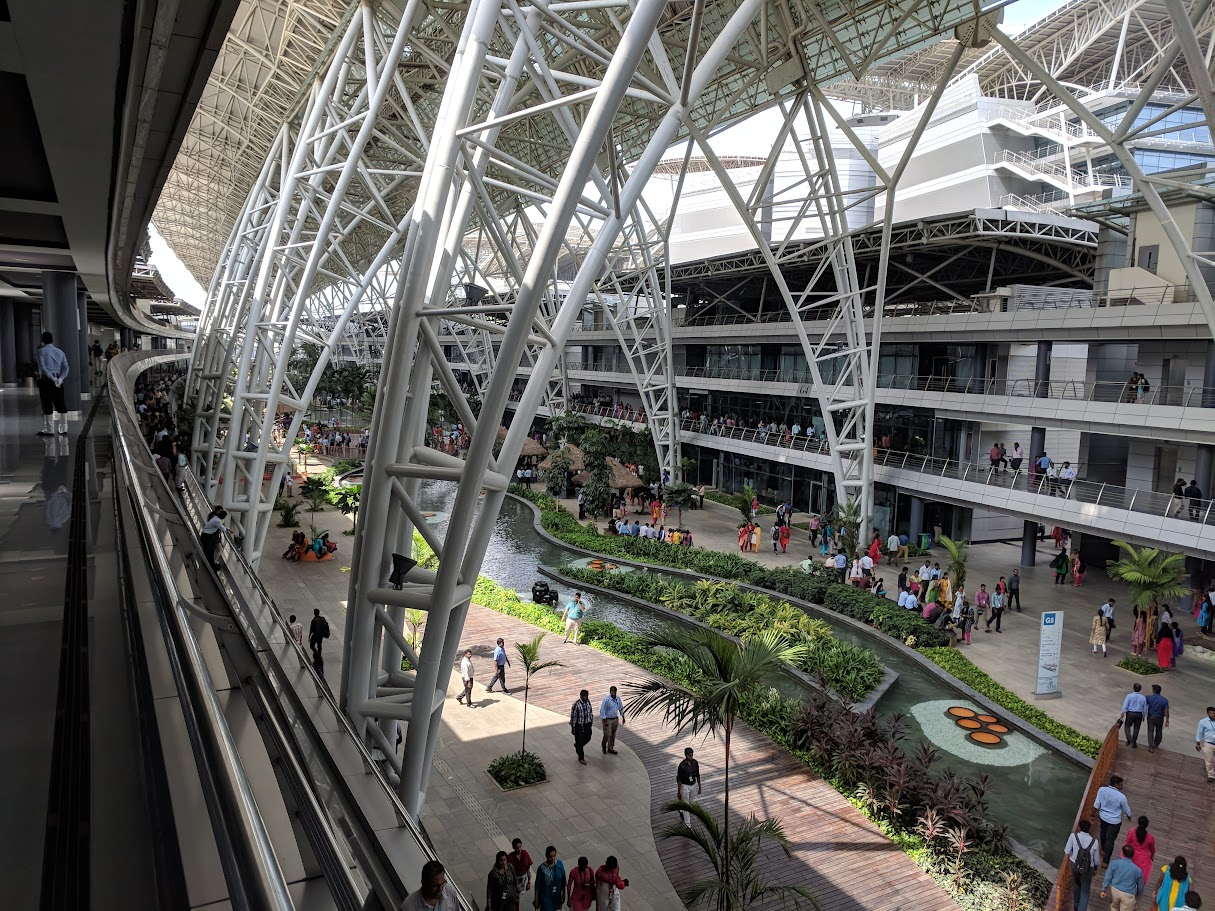
The way that I like to describe being a futurist at TCS is that we help our clients understand the dynamics that are creating our emerging future, identify future scenarios that could create opportunities or disruption, and plot a strategy forward.
In terms of skillset, you really need to be a systems thinker – connecting the dots between things that are happening in one domain to things that are happening in another, and then rehearse how various factors could shape the future. Note that I say “rehearse” rather than “predict” the future. Things are too complex and moving too fast to accurately predict the future. But we can look across the landscape of factors that are influencing the future and identify multiple scenarios.
Also, you have to be broadly shallow and then have the ability to go really deep very quickly because our clients are everything from steel manufacturers to insurance companies, to financial services firms, to airlines, to software companies.
Mobility Ecosystems are Around the Corner
So, we have to know something about a lot of things, but then when we talk to a client, we really go deep into things like: Where's the future of the mobility ecosystem headed from the perspective of an airline? Or, where's insurance headed from the perspective of the mobility ecosystem?
CoAi: What you do mean, exactly, when you talk about the mobility ecosystem?
Bill: When you think about what enabled the last industrial revolution, it was really a vertical industry construct. This provided efficiencies in manufacturing, supply chains, sales, marketing, and so on. But with the explosion of new scientific and technological breakthroughs, we’re seeing an evolution to horizontal ecosystems. In the context of mobility, you can see a world where there aren’t auto manufacturers that build cars to get us from point A to B, but rather an interconnected ecosystem enabled by the internet, autonomous vehicles, passenger drones, smart cities, emergency services, etc. These providers will span multiple industries that evolve into ecosystems, and those ecosystems will also be interconnected.
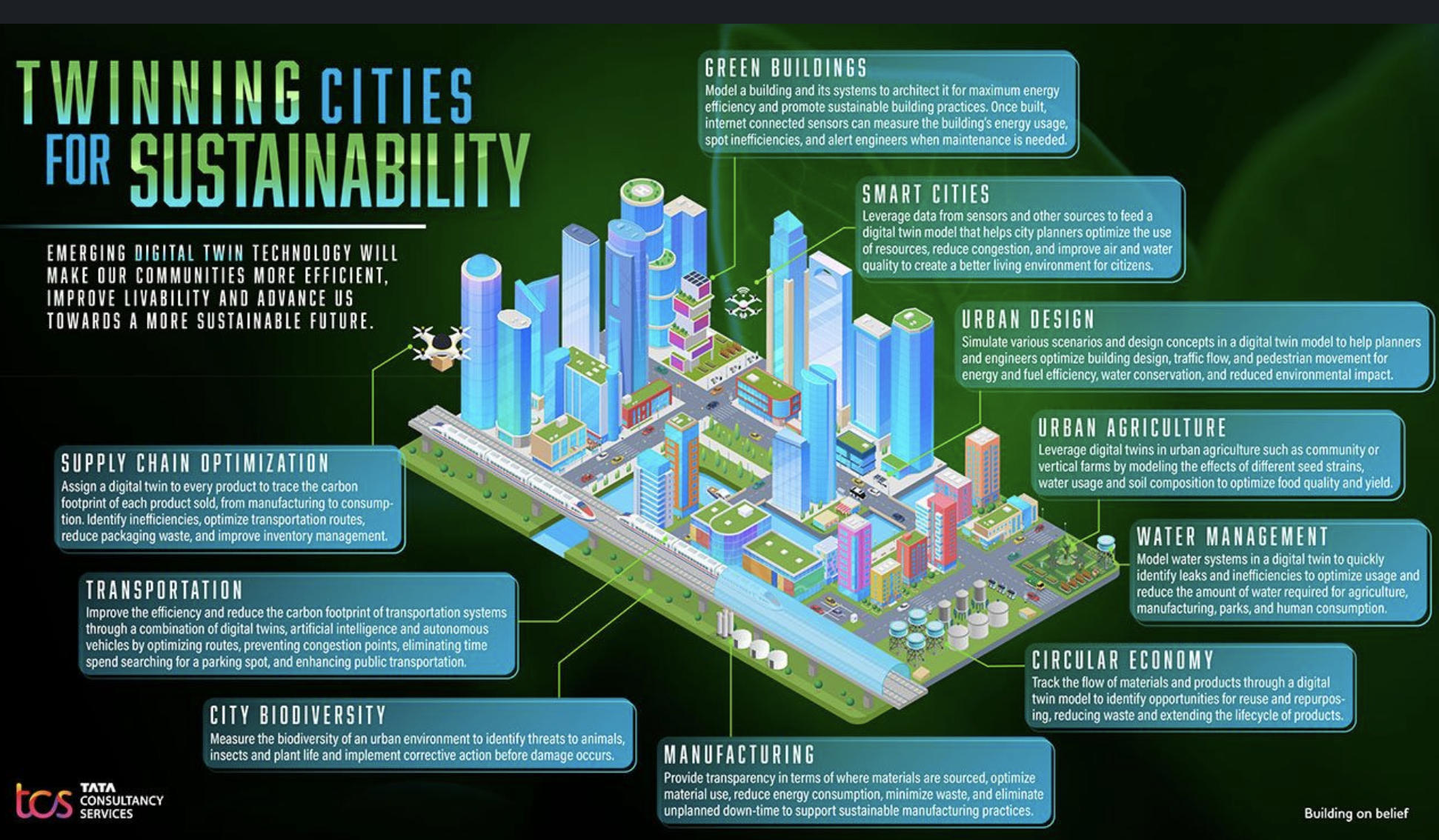
CoAi: That sounds fascinating. And definitely world-changing to many industries. It sounds like you're talking about Mobility-as-a-Service, which we're starting to hear about, is that right? What do you see as the first steps in this process, and how soon might this new reality become visible to the rest of us?
Bill: Mobility-as-a-Service is just one aspect of the broader mobility ecosystem, but an important one. In terms of first steps for Mobility-as-a-Service at scale, autonomous vehicles will be a critical piece of the puzzle. When we have fully autonomous vehicles, a lot of us who have cars today, which sit unused 95% of the time, will no longer need them. There will be autonomous vehicles available to us anytime we need one. That creates both a lot of opportunity and potential disruption.
For example, think of all the garage space in our homes that could be repurposed into something else, or parking garages that could be converted or rebuilt into much-needed housing. Because autonomous cars can safely travel much closer together, we could free up road space for more bike lanes. All these things become possibilities. But on the disruption side, what will happen to municipal budgets when parking meter and speeding ticket revenue plummets? If autonomous vehicles never or rarely crash into each other, what will happen to auto insurance providers and auto-body repair shops? What will happen to the revenue model for auto manufacturers? These are all critical questions that will need to be addressed, and they are a good example of the kinds of conversations we have with our clients.
How soon will this happen? Your guess is as good as mine. As I mentioned before, things are too complex to accurately predict the future. But we can lay out scenarios like the ones I just described and create strategies to avoid disruption, and then walk those scenarios back to the current time to identify key markers that will indicate where things are likely headed as things play out.
CoAi: Let’s go back to something you mentioned earlier: the sudden explosion of all things AI – or at least, generative AI – that happened at the end of 2022, really changed everything. But does that mean that all these Global 2000 executives are actually ready to make change happen in their companies?
Bill: (Laughs) Not quite! There’s a good amount of uncertainty about exactly what to do. In the big arc of change, here's where I think we are, by and large: I think we’re at a point of interest. But we're not necessarily at a point of change. That is, things are definitely happening. And executives need to think about where their company is going to be in, say, seven to 10 years, and how it's likely going to start looking a lot different than it does today.
Large Companies Ask, “Who Moved My Moat?”
And that's a really hard context switch for them. Because their company has been that same company – more or less – for potentially 100 years. And they’ve fundamentally operated in the same way, at a basic level, for 100 years. And now, in a *very* short period of time, they're going to have to start thinking about operating in a very different way or they may be disrupted by a more nimble, AI-enabled competitor.
And because of the ecosystem construct I mentioned earlier, and because AI is such a force multiplier for small companies, we’re looking at truly dramatic change. One of the things that big companies have always enjoyed is a competitive moat because of their size and scale. If you're a small company, it requires a lot of capital, a lot of people, and a lot of time to get big. In the last few years that’s been changing somewhat because of a lot of digital technologies, but now, AI just pours gasoline on the fire. Many of the old moats will start to go away because you have the ability to innovate much, much more quickly now. You don't need as many people as you once did. And so that competitive moat that these big companies have had for all these years starts to erode. And I think that's what's really starting to open the eyes of a lot of people.
CoAi: So, as a futurist, what subjects do you talk to your clients about? Or, maybe I should say, what subjects do you *not* discuss with them? Are your discussions mostly tech-focused, or do they run a lot broader than that?
Bill: It's absolutely not just about science and technology. Because, of course, the emerging future is shaped not only by science and tech, but also by geopolitical issues, societal issues, economic issues, environmental issues, etc.
I'll give you a great example: One huge societal issue is the population decline. The birth rate in developed and developing countries is falling precipitously. In fact, there was just an article in the last few days that talked about the fact that Japan’s birth rate has now fallen to 1.2 children per couple. And so the country is really falling off a cliff, population-wise. And what are the implications of that when you fast forward 30 or 40 years?
There's a bunch of related issues, such as who's going to be there to do all of the work that needs to be done? When you don't have as many people, who are going to be the great innovators needed in the future? And in a similar vein, we now have more people on the planet over the age of 65 than we do under the age of five.
And what does that mean? What does it mean to have an aging population? It means that you likely have people working in your company much longer. It means that we have an elderly population that we're going to need to start thinking seriously about.
So, if you're an insurance company, does your entire model get disrupted because of how long you have to continue to insure everyone? Think about how that could completely break all of your actuarial models.
And what does it mean to have five generations in the workforce? That’s where we are today. And as Gen Z starts to take positions of power, what will that look like? As a generation, they are much more purpose-driven and somewhat less profit-driven than previous generations. And, of course, I'm generalizing here about them as a group, but when they start to rise to positions of political power and corporate power, how does that change the way that those companies and those institutions think and act? These are all things that we talk a lot about with our clients.
CoAi: Very interesting. And when you look at AI today, and how it’s likely to change things going forward – just in the next few years – what do you see?
Bill: Well, my oldest daughter just graduated from CSU with a business degree, and I told her that I feel I was fortunate to graduate in 1993, at the dawn of what I’ll call the “public internet.” And now, I think she's really fortunate to graduate in 2024, at the dawn of the explosion of AI.
AI Opportunities are Right Here, Right Now
And the reason that she – and members of her generation – are so fortunate is that the amount of opportunity that AI is going to create for her is massive. AI is going to be such a force multiplier for those who seize the opportunity. For example, think back 20 years, 30 years, 40 years, when you had to do a job in order to learn how to do that job. So, let’s say you became a middle manager because you had been, you know, a marketing associate and then a marketing coordinator, and then a marketing manager and then a director, and you sort of worked your way up because you learned a little more at each level.
Compare that to today, especially looking forward, and you're able to leapfrog all of that and get to, say, the director of marketing level in a much shorter amount of time, because you don't have to spend years learning all those incremental things along the way. You've got this AI copilot with you that's teaching you, and just skipping over all the years that previous generations had to put in.
And, of course, that creates a really interesting dynamic because if someone can know everything that they need to know, if they can know everything that somebody with 15 years of experience knows, after only one year on the job, what does that do to the office dynamics? And when they start leapfrogging others with many more years of experience, I think that's going to ultimately create some particularly challenging dynamics in these big corporate structures where hierarchy is still seen as a really good thing. That's going to be very interesting.
CoAi: No doubt! May we live in interesting times, right? I’m pretty sure we’re in them right now. And speaking of which, let’s take this down from the somewhat speculative, high level of macro change, both in the world and in the workplace over the next few years, all the way down to the individual today. What can you tell us about digital twins, and should we all look forward to having one?
Bill: When you think about a digital twin, here's how I describe it. Think about it as a virtual replica of a physical person, place, or thing, so it’s almost like it's a “virtual noun,” if you will. It could be a manufacturing line. It could be a farm. It could be a human being. It could be a smart city. And the magic behind it is knowing that it would provide a very detailed look at what's happening right now.
Coming Soon: Your Digital Twin
So, for example, you could look at your manufacturing line and find inefficiencies in it and ways to optimize it. But when you start to look forward to where digital twins could go, they will allow you to do scenario planning. Think about endless what-if scenarios: What if we did this to our manufacturing line? How would that enable us to be more efficient, to do more with less? And when you pour AI onto that, it allows you to run not just dozens or hundreds of simulations, but literally millions of simulations.
And the implications of that are massive in terms of thinking about health and wellness because you can imagine that babies will be born with a digital twin, and that digital twin will grow up with them.
Let's say that you need to have open heart surgery. Your surgeon could practice on your digital twin beforehand. And in doing so, he or she could identify the particulars around you and what's likely to happen in order to have a much better outcome. And so, this is a massive opportunity for improved health and wellness. You could sit with your doctor and he might say, “Listen, I keep telling you to quit eating a bag of potato chips every day. Let's run a scenario to see what your health would look like in 18 months if we just cut out potato chips from your diet.”
And to zoom back out again, you could run these scenarios on the environment. In fact, Nvidia is working on creating a digital twin of the earth. Can you imagine how useful that would be when it comes to figuring out the various trade-offs and doing the right thing environmentally? Or, what about just optimizing traffic flows in a smart city? Did you know that one of the biggest creators of carbon emissions is people driving around and around in big cities looking for a parking spot? What if we could direct people to the nearest parking spot? That sounds like a small thing, but it could have a huge impact globally.
CoAi: Nice. The potential of all these things together really sounds big. What’s your personal experience with digital twins so far? I understand that they’ve helped you run a couple of marathons, is that right?
Bill: Yes, indeed! I’m lucky that TCS is the title sponsor for the New York and London marathons, and so those were my first two marathons ever, just in the last year. I’m really much more of a biker than a runner, but I was thinking about digital twins and wondering about their potential to help me run my first marathon, and that started things off.
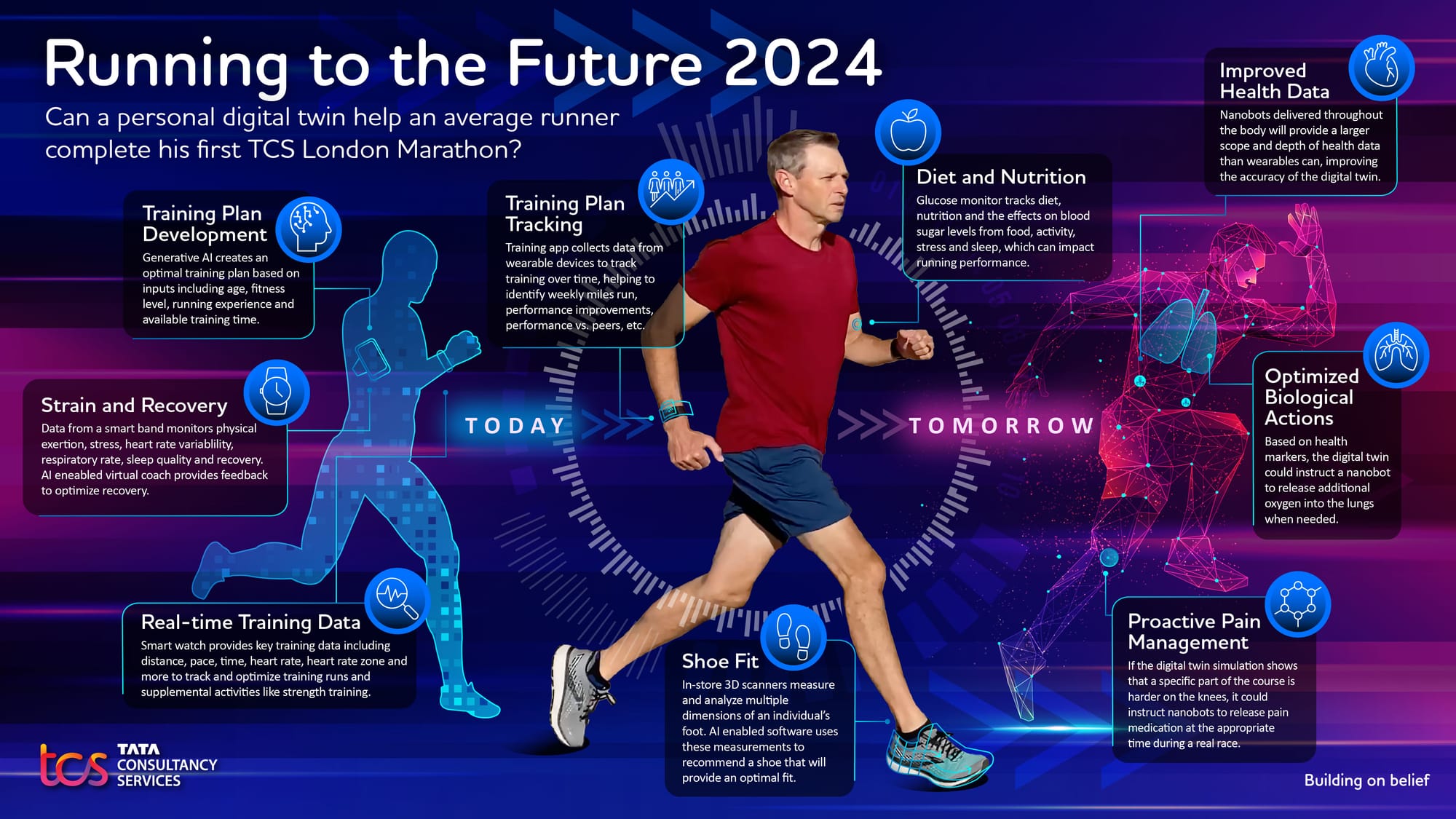
Happily, the sports division at TCS was really into the idea, and we’ve just been continuing to improve things each time. And my time definitely improved from New York last November to London this April. I’ll be running the Chicago marathon this fall, so we’ll see what we can do there. We’re going to keep working on making my digital twin better and even more informative. With true AI, it’ll be able to tell me if I really need to take a rest day, or if I shouldn’t slow down so much at mile 20, or if I need to add 15 grams more protein to my daily intake. We’re not quite there yet, but we’re getting there!
But I do want to mention the larger implications of all this. Look forward a few years and think about when this technology no longer consists of just wearable devices, but when they start going into our body in the form of nanobots. Think about nanobots swimming around in our bloodstream and reporting back to our doctors. It’s not too much of a stretch to think of them as very early detectors of things like heart disease, diabetes, Alzheimer's, and all of these diseases that are really big challenges for us today.
Cancer is a great example. You know, someone can have a pretty devastating form of cancer, but if they catch it early enough, it can be much less of a big deal. If it gets to stage three or four, then someone might be fighting for their life. But if you can identify cancer cells very early, that becomes incredibly powerful in terms of improving our odds of living long and healthy lives.
CoAi: That is something I’m looking forward to! The huge opportunity for AI to do amazing things in healthcare feels like one of the most promising applications of AI out there. Bill, this has been an amazing conversation, and there’s so much more detail that we could go into if we had the time. But we might have to save that for another chat down the road. And speaking of the road, best of luck in Chicago this fall!
Bill: Thanks, Phil. It’s been a lot of fun.

